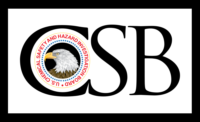Posted with permission from FairWarning.org:
The Consumer Product Safety Commission is trying to change its image, one civil penalty at a time.
For decades, the federal agency largely was seen as a doormat with few resources and a toothless enforcement record. But over the past few years, under its chairman, Elliot Kaye, the CPSC has dramatically increased the penalties imposed on wayward companies, including multi-million dollar settlements with firms accused of failing to make timely disclosures of product hazards.
Kaye, a lawyer nominated by President Obama in 2014, has stated bluntly that he hopes the increased penalties – which are permitted by legislation approved by Congress in 2008 – change the way regulated businesses view the CPSC.
In fiscal years 2015 and 2016, the CPSC announced $26.4 million and $31.25 million in penalties, agency records show, far in excess of the previous record total of $9.239 million in 2009.
“He [Kaye] is trying to make sure that companies which previously had been including civil penalty potential as part of the cost of doing business now are at least more discouraged from doing that,” said Commissioner Robert Adler, a Kaye ally.
But with the November 8 election of Donald Trump, who has vowed to cut business regulations, the amped up penalties could come under tough scrutiny. Kaye declined an interview request, apparently to avoid drawing the ire of Republican congressional critics with oversight of the CPSC budget, and of the incoming Trump administration. In a written statement, Kaye said the penalty policy was “intended to deter behavior that can put the safety of consumers at risk” and praised “the outstanding legal work and integrity displayed by our Office of the General Counsel.”
Business groups, including the U.S. Chamber of Commerce and the National Association of Manufacturers, either did not respond to requests for comment or declined to comment.
Before Congress acted in 2008, CPSC penalties were capped at $8,000 per violation, with an aggregate limit of $1.825 million for a series of related offenses. But following a string of prominent news stories about children being killed by dangerous products, Congress approved the Consumer Product Safety Improvement Act. Among other things, the act upped the agency’s penalty authority to $100,000 per violation, with an aggregate limit of $15 million, with adjustments for inflation.
The CPSC, however, couldn’t immediately take advantage of this newfound power. That’s because the agency mainly penalizes companies for failing to immediately report potential product hazards, and the roots of such violations often stretch back several years, in this case to a time before the law was changed.
So, it wasn’t until around 2013 that agency investigators started seeing cases in which all of the questionable conduct occurred after the bill was signed into law by President Bush. Over the ensuing 20 months or so, the agency dribbled out a half-dozen, multi-million-dollar settlements under its elevated penalty authority.
$10 million or more
Then, in February 2015, during a keynote address at the annual International Consumer Product Health and Safety Organization conference in Orlando, Kaye made it explicit that the CPSC would be aggressively seeking higher civil penalties.
“I have a real concern from some of the fact patterns that I’ve seen, that civil penalties are seen as nothing more than the cost of doing business,” Kaye said at the time. “So my directions to CPSC staff are: When it’s deserved, we want to see higher civil penalties.”
Three months later, the agency announced that Office Depot had agreed to pay a $3.4 million civil penalty to settle charges that the retailer had knowingly failed to report defects in two models of office chairs that caused their seatbacks to fail, resulting in dozens of injuries nationwide.
Since then, the CPSC has announced several multi-million-dollar settlements with companies accused of failing to immediately report product hazards, including Johnson Health Tech ($3 million), whose fitness trainers and ellipticals were recalled for defects that caused fires; Philips Lighting ($2 million), whose compact fluorescent lamps fell apart, striking people and objects below; Teavana ($3.75 million) whose tea tumblers suddenly exploded during normal use; and Jarden Consumer Solutions ($4.5 million), whose coffeemakers burned dozens of people. Under terms of the settlements, the companies did not admit wrongdoing.
In March, the agency announced the largest civil penalty in its 43-year history, a $15.45 million settlement with Gree Electric Appliances Inc., a Chinese firm that was a charged with failing to report that its dehumidifiers were overheating and causing fires. Agency staff also accused the company of lying to investigators about the dehumidifiers meeting flammability standards. As part of the settlement, Gree did not admit to the charges.
Federal law requires companies to report to the CPSC within 24 hours any product defects that could result in serious injuries or substantial hazards.
The record settlement with Gree was announced just weeks after Kaye said at the 2016 International Consumer Product Health and Safety Organization conference that he was “hoping” to see penalties of $10 million or above.
Rachel Weintraub, legislative director and general counsel for the Consumer Federation of America, said such tough talk from CPSC officials is highly unusual. “The regulated community needs to know that the chairman and the agency takes these matters seriously,” she said.
The CPSC’s most recent settlement was announced on Nov. 14. PetSmart Inc. agreed to pay a civil penalty of $4.25 million to settle charges that it failed to immediately report a defect in glass fish bowls that caused them to break and severely cut consumers. Agency staff also accused the company of failing to accurately identify the number of bowls that posed a laceration hazard.
Consumer advocates have welcomed the stronger enforcement policy. Sally Greenberg, executive director of the National Consumers League, said the new policy is going to make companies “think twice” about not complying with the law.
One of the smallest
The overseer of 15,000 different kinds of consumer products, the CPSC has long been seen as ineffectual. Founded in 1972, the commission began as one of the smallest federal regulatory agencies, with a budget of $34.7 million and a staff of 786.
Then, starting in the Reagan administration, the agency faced repeated budget and staff cuts. By 1989, the budget was still around $34 million, while the staff had dwindled to 523 people.
President Reagan further cramped the agency’s power by signing legislation that barred it from setting mandatory product safety standards unless it could prove that voluntary industry standards were ineffective or being ignored.
In 2007, a Chicago Tribune series laid bare the failings of the CPSC, exposing the deaths of children from products that the agency had failed to keep off the market. The ensuing scandal led Congress to pass the Consumer Product Safety Improvement Act, which in addition to raising the agency’s penalties also boosted its budget and staff.
Today, the agency has a budget of $120 million, with a staff of 535. It’s currently led by five commissioners, three Democrats and two Republicans, whose responsibilities include approving the civil penalty settlements negotiated by CPSC staff and accused businesses. These days, the settlements typically are approved on a 4-1 or 3-2 vote. So long as no other factors come in to play besides the end of a commissioner’s term, the political makeup of the commission cannot change until late 2017, when the term of one of the Democratic members expires.
A clash over transparency
The Republican appointees on the commission, Ann Marie Buerkle and Joseph Mohorovic, as well as manufacturers and their representatives have complained that the agency has not been transparent enough about the rationale behind the elevated penalties.
“It’s legitimate in my mind that you make an example of the bad actors,” said Chuck Samuels, a partner with the law firm Mintz, Levin, Cohn, Ferris, Glovsky and Popeo PC, who represents manufacturers, importers and retailers. But “you need to explain the example a little bit. Why is this an $8 million penalty and not a $5 million penalty?”
Kaye, Adler and the other Democratic commissioner, Marietta Robinson, have countered that the CPSC can’t release more information about individual incidents because each civil penalty is the product of a settlement, and, as terms of the settlements, companies typically insist that many details not become public.
“No good lawyer is going to negotiate a settlement that makes public all of the candid factors that went into the client’s decision to settle rather than litigate,” Robinson said in a June statement. “Therefore, no settlement agreement is going to be anything other than opaque to non-parties.”
Industry and the Republican members counter that the commission could do a better job of publicizing the factors that go into determining a civil penalty. The transparency debate, however, could ultimately be moot with the election of Trump as president. As a candidate, Trump campaigned on slashing business regulations, which would seem to put the CPSC and its rising civil penalties squarely in his crosshairs.
But what he may do with the agency remains unclear at the moment. His transition team did not respond to a request for comment.
About FairWarning
This story was reported by FairWarning (www.fairwarning.org), a nonprofit news organization based in Pasadena, Calif., that focuses on public health, safety and environmental issues.



